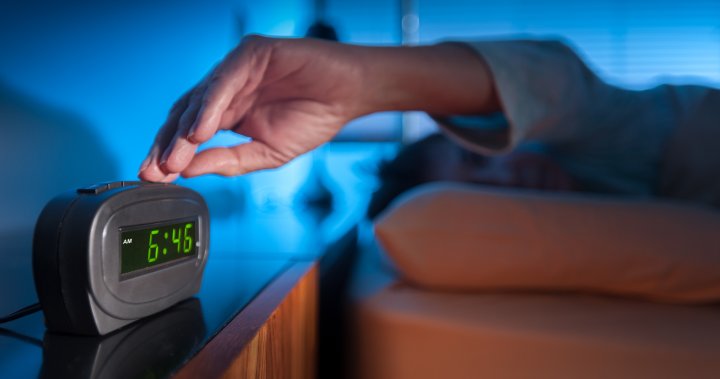
End daylight saving time? ‘Rip the bandaid off,’ researcher urges
Global News
A statement published in the Journal of Sleep Research on Wednesday said evidence reviewed found that daylight saving time 'can interfere negatively with sleep regulation.'
Sleep researchers in the U.K. are calling for the abolishment of daylight saving time due to the impact it has on the human body.
A statement published in the Journal of Sleep Research on Wednesday said evidence reviewed found the change in March that sees clocks jump forward an hour “can interfere negatively with sleep regulation.”
Prof. Malcolm von Schantz, one of the researchers from the British Sleep Society, said getting rid of the time change and keeping the U.K. at British standard time — when clocks fall back an hour — would add benefits.
“What is really important is avoiding switching to daylight saving time (DST) year-round because that could really have consequences both for physical health, but also for mental health. It would probably worsen the incidence of winter depression, for example,” he said.
He added that people would see an improvement in sleep and circadian rhythms — defined by the National Institutes of General Medical Sciences as the physical, mental and behavioural changes an organism experiences over a 24-hour period.
The push to end daylight saving time and change to a permanent time all year round is not new.
In fact, it’s been seen in multiple countries, including Canada, with the province of Quebec just announcing Tuesday that it would begin consultations on whether to end the time change.
Michael Antle, a psychology professor at the University of Calgary, told Global News the change of time was created in part to get more time in the evenings.













